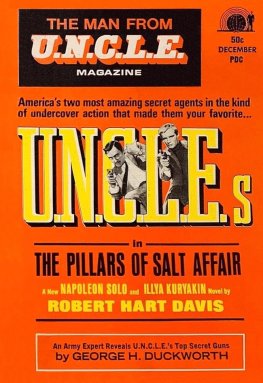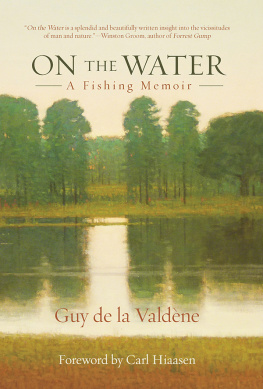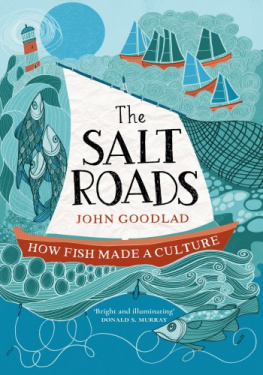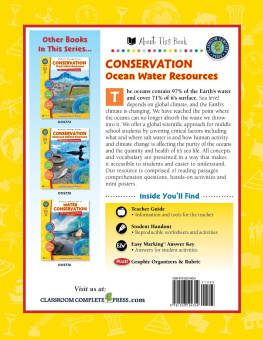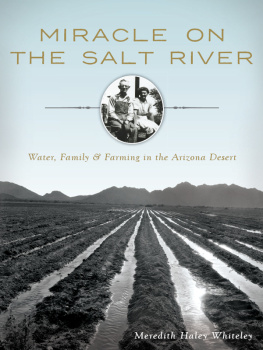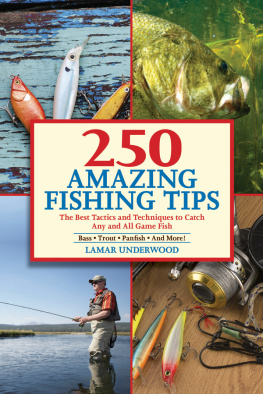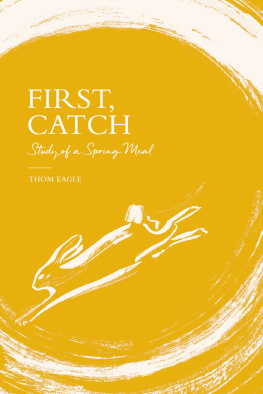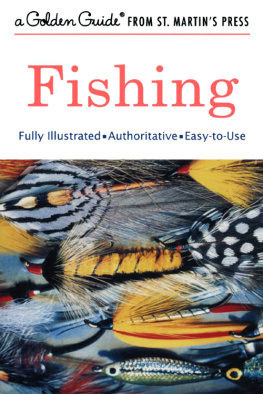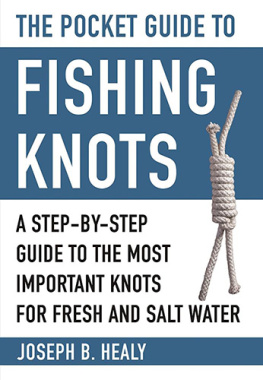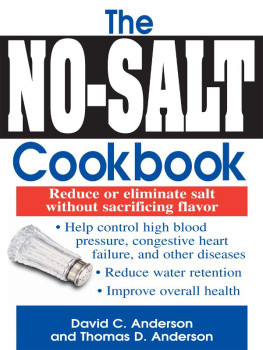Joe Brooks - Salt Water Fly Fishing
Here you can read online Joe Brooks - Salt Water Fly Fishing full text of the book (entire story) in english for free. Download pdf and epub, get meaning, cover and reviews about this ebook. year: 2000, publisher: Derrydale Press, genre: Home and family. Description of the work, (preface) as well as reviews are available. Best literature library LitArk.com created for fans of good reading and offers a wide selection of genres:
Romance novel
Science fiction
Adventure
Detective
Science
History
Home and family
Prose
Art
Politics
Computer
Non-fiction
Religion
Business
Children
Humor
Choose a favorite category and find really read worthwhile books. Enjoy immersion in the world of imagination, feel the emotions of the characters or learn something new for yourself, make an fascinating discovery.

- Book:Salt Water Fly Fishing
- Author:
- Publisher:Derrydale Press
- Genre:
- Year:2000
- Rating:3 / 5
- Favourites:Add to favourites
- Your mark:
- 60
- 1
- 2
- 3
- 4
- 5
Salt Water Fly Fishing: summary, description and annotation
We offer to read an annotation, description, summary or preface (depends on what the author of the book "Salt Water Fly Fishing" wrote himself). If you haven't found the necessary information about the book — write in the comments, we will try to find it.
Salt Water Fly Fishing — read online for free the complete book (whole text) full work
Below is the text of the book, divided by pages. System saving the place of the last page read, allows you to conveniently read the book "Salt Water Fly Fishing" online for free, without having to search again every time where you left off. Put a bookmark, and you can go to the page where you finished reading at any time.
Font size:
Interval:
Bookmark:
With a new Foreword by Joe Healy,
Editor of Salt Water Fly Fishing magazine

![]()
THE DERRYDALE PRESS
Published in the United States of America
by The Derrydale Press
4720 Boston Way, Lanham, Maryland 20706
Distributed by NATIONAL BOOK NETWORK, INC.
New foreword copyright 2000 BY JOE HEALY
First Derrydale paperback printing with french folds 2000
All rights reserved. No part of this publication may be reproduced, stored in a retrieval system, or transmitted in any form or by any means, electronic, mechanical, photocopying, recording, or otherwise, without the prior permission of the publisher.
Library of Congress Cataloging-in-Publication Data
Brooks, Joe, 19051972.
Salt water fly fishing / Joe Brooks.
p. cm.
Originally published: New York : Putnam, 1950. With a new foreword.
ISBN: 978-1-58667-007-8
1. Saltwater fishing. 2. Fly casting. I. Title.
SH457.B7 2000
799.16DC21 00-025870
 The paper used in this publication meets the minimum requirements of American National Standard for Information SciencesPermanence of Paper for Printed Library Materials, ANSI/NISO Z39.48-1992. Manufactured in the United States of America.
The paper used in this publication meets the minimum requirements of American National Standard for Information SciencesPermanence of Paper for Printed Library Materials, ANSI/NISO Z39.48-1992. Manufactured in the United States of America.
TO MARY
THE NAMES used for the various fishes with which this book deals are in accordance with the Standard Check List of Common Names for Principal American Sport Fishes, as compiled by the Outdoor Writers Association of America.
THE text of the book thats now in your hands was first published in 1950 by G. P. Putnams Sons, New York. It has been a definitive resource, right from the start. Books predating this one may have touched on anglers casting flies in salt water (as indeed they were before the twentieth century) or listed fly patterns for saltwater duty, but as the title tells us, Salt Water Fly Fishing was the first book to train a focus solely on the sport.
Even though this new edition from Derrydale Press marks the books golden anniversary, we cant assess the value of the book only by its age. So much of Joe Brooks writing remains useful today that if this were the first printing, the angling world would have to consider it a vital text. My hunch will be proved true if its your first time reading the book.
Ive read Salt Water Fly Fishing a half-dozen times, and Im still astounded by how instructive the book is; Im also struck by how entertaining and crisp Brooks prose is. Ive learned much from the book, as legions of anglers have.
I first discovered Salt Water Fly Fishing right about the time I was discovering saltwater fly fishing. It was the early 1990s and I was living in New York and working as a staff editor at Outdoor Life, for which magazine Brooks was a frequent contributor in the 1950s and served as fishing editor from 1968 to 1972. The library at the magazines office was filled with various editions of out-of-print books, many of which were written by former and current contributors to the magazine, and amid the stacks I found a weathered first edition of this book. I read every page that afternoon. What did I learn? That bonefish prefer to feed into a current, that tarpon will hit fly-rod poppers, and that by watching gulls working bait I could follow the movements of schools of striped bass. Thats what I remember now. Who knows how much Ive retained latently as foundation for what I know about the sport, and what I continue to learn?
A Maryland native, Brooks himself was introduced to saltwater fly fishing in the 1920s by fly-tying innovator Tom Loving when the two fished for shad, striped bass, and brackish-water largemouth bass in the Susquehanna River and other tributaries of Chesapeake Bay. Brooks often wrote of his fly-fishing experiences in the pages of Outdoor Life, but it was this book that gave generations of anglers an instruction manual on casting flies in the brine. Indeed, the publication of the book in 1950 not only legitimized the sport of saltwater fly fishing as a discipline unto itself, but also exposed gung-ho sportsmen in post-war America to an entirely new concept in fishing and catching large, speedy ocean fish with fly tackle. The author of this book deserves much of the credit for introducing saltwater fly fishing to a mass audience.
It was no coincidence that soon after the book was published a national movement began to evolve whose aim was to collectively build their experiential know-how of saltwater fly fishing tactics, ocean fish, and coastal fisheries. Later on, in the 1960s, Joe Brooks helped found The Salt Water Fly Rodders of America, a national group that brought together anglers who had an affinity for casting flies for saltwater species.
Brooks continued his saltwater fishing throughout the 1950s, 60s, and 70s, catching such fish as the first recorded permit on fly tackle; a 148-pound tarpon that for some time was a fly-rod world record; and in 1957, a 19-pound, 8-ounce permit in Cuba that still stands as an International Game Fish Association tippet-class world record. Before he became known for fly fishing, Brooks was an all-star athlete and a semi-pro football player, a member of the Baltimore Orioles farm team, and a sparring partner to Jack Dempsey. Brooks died in 1972, and is buried in Livingston, Montana.
Many of todays best-known saltwater fly fishers were influenced or mentored by Joe Brooks. Lefty Kreh, the sports current leading man, was a close friend of Brooks for several decades. After helping Lefty pick out his first fly outfit in the late 1940s, a South Bend fiberglass rod and GAF line, Brooks gave Lefty his first fly-casting lesson. Joe was one of the greatest people to get involved with fly fishing, Lefty says. He introduced legions of people to fishing, especially other writers. Lefty says that one of Brooks greatest contributions to the sport was opening up new fly-fishing destinations, such as Canada, New Zealand, south Florida and the Florida Keys.
Fly-tackle-developer Cam Sigler calls Brooks Gentleman Joe, truly a gentleman. Cam met Brooks in 1957; today Cam says that Brooks influenced not only his choice of career, but his entire life. The things he taught were honesty and integrity, in whatever you do. Chico Fernandez met Brooks at the Miami Beach Rod & Reel Club in the 1950s and calls him a mentor and teacher.
Tarpon guru Stu Apte has said that Brooks was a second father to him. Indeed, when I visited Stu at his home in the Florida Keys, he wore a look of reverence when he took down from his bookshelf a first edition of this book signed to him by the author. Stu also played a tape of an episode of Wide World of Sports from the 1960s during which he guided Joe Brooks for tarpon in the Florida Keys.
Joe Brooks did more than anyone to popularize the sport of saltwater fly fishing, and with popularity came the advancements in techniques and the refinements in tackle from which we profit today.
On the way through this book, Brooks may provoke you to rethink some of todays conventions on the sport. A good example comes in the chapter simply entitled Equipment. Here, Brooks states that a slow-action 9-foot fly rod is best for saltwater fishing. His reasons? The bigger, slower rod allows you to shoot the line greater distances with less effort. Nowadays, fast, stiff fly rods are most common for saltwater fishing, though bit by bit anglers seem to be rediscovering the attributes of slower-action rods.
Font size:
Interval:
Bookmark:
Similar books «Salt Water Fly Fishing»
Look at similar books to Salt Water Fly Fishing. We have selected literature similar in name and meaning in the hope of providing readers with more options to find new, interesting, not yet read works.
Discussion, reviews of the book Salt Water Fly Fishing and just readers' own opinions. Leave your comments, write what you think about the work, its meaning or the main characters. Specify what exactly you liked and what you didn't like, and why you think so.

